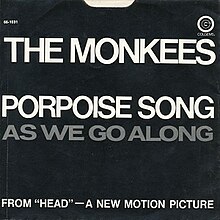
The Monkees are an American rock and pop band originally active between 1966 and 1971, with reunion albums and tours in the decades that followed. Their original line-up consisted of the American actor/musicians Micky Dolenz, Michael Nesmith and Peter Tork with English actor/singer Davy Jones. The group was conceived in 1965 by television producers Bob Rafelson and Bert Schneider specifically for the situation comedy series The Monkees, which aired from 1966 to 1968. The band's music was initially supervised by record producer Don Kirshner, backed by the songwriting duo of Tommy Boyce and Bobby Hart.

Carole King Klein is an American singer-songwriter who has been active since 1958, initially as one of the staff songwriters at the Brill Building and later as a solo artist. She is the most successful female songwriter of the latter half of the 20th century in the US, having written or co-written 118 pop hits on the Billboard Hot 100. King also wrote 61 hits that charted in the UK, making her the most successful female songwriter on the UK singles charts between 1962 and 2005.

Head is a 1968 American satirical musical adventure film written and produced by Jack Nicholson and Bob Rafelson, directed by Rafelson, starring television rock group the Monkees and distributed by Columbia Pictures.

Pisces, Aquarius, Capricorn & Jones Ltd. is the fourth album by the Monkees. It was released on November 6, 1967, when the Monkees were exerting more control over their music and had started to play many of the instruments themselves, something that their record company had previously forbidden. Pisces, Aquarius, Capricorn & Jones Ltd. sold more than three million copies and was also the band's fourth consecutive album to reach number one on the U.S. Billboard 200.

The Best of the Monkees is a Monkees compilation released by Rhino Entertainment. It contains 25 songs from the Monkees' repertoire, listed in chronological order by release date. Also included is a bonus karaoke CD with five tracks. Unlike previous Rhino compilations, this one does not include any material from the 1980s or 1990s reunions, focusing strictly on the band's 1960s output.

Head is the soundtrack to the film Head, the only theatrical release by the Monkees. Released in 1968 through Colgems, it was the band's sixth album. Head was the last Monkees album to feature vocal contributions by Peter Tork until Pool It! in 1987 and the last to feature all four Monkees until 1996's Justus.
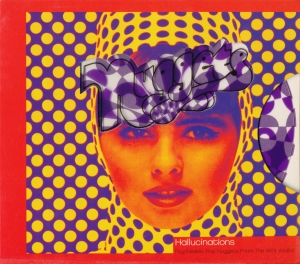
Hallucinations: Psychedelic Pop Nuggets from the WEA Vaults is a 2004 compilation album released by Rhino Handmade, one of two new compilations using the Nuggets name. As with all Rhino Handmade releases, it was only available online, and a limited number of copies were pressed. All 7500 copies are currently sold out.

"Last Train to Clarksville" was the debut single by American pop rock band the Monkees. It was released on August 16, 1966 and was later included on the group's self-titled album, which was released on October 10, 1966. The song, written by Tommy Boyce and Bobby Hart, was recorded at RCA Victor Studio B in Hollywood on July 25, 1966, and was already on the Boss Radio "Hit Bounds" playlist on August 17, 1966. The song topped the Billboard Hot 100 on November 5, 1966. Lead vocals were performed by the Monkees' drummer, Micky Dolenz. "Last Train to Clarksville" was featured in seven episodes of the band's television series, the most for any Monkees song.
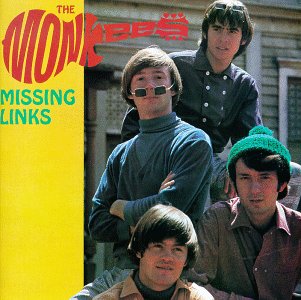
Missing Links is a compilation album of rare and previously unreleased songs by the Monkees, issued by Rhino Records in 1987. It is the first volume of a three-volume set, followed by Missing Links Volume Two in 1990 and Missing Links Volume Three in 1996.
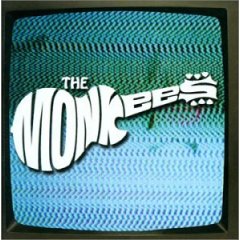
The Monkees Anthology is a two-CD compilation set by the Monkees issued in 1998 and is the first collection to include material from their last studio album, Justus. It includes almost all the original singles and B-sides, as well as a TV rarity and one live track.
"Star Collector" is a song written by Gerry Goffin and Carole King in 1967 and recorded by The Monkees. The song is included on their fourth album Pisces, Aquarius, Capricorn & Jones Ltd. It was featured in five second-season episodes of their television series: "The Wild Monkees", "Hitting the High Seas", "Monkees Watch Their Feet", "Monkees in Paris" and "Monkees Mind Their Manor". "The Wild Monkees" uses an early mix of the song, and the other episodes use the released mix.

"Pleasant Valley Sunday" is a song by Gerry Goffin and Carole King, most famous for the version recorded by The Monkees in 1967. Goffin's and King's inspiration for the name was a street named Pleasant Valley Way, in West Orange, New Jersey where they were living at the time. The road follows a valley through several communities among the Watchung Mountains. The lyrics were a social commentary on status symbols, creature comforts, life in suburbia and "keeping up with the Joneses". It became one of the Monkees' most successful singles.

The Monkees is an American situation comedy series that first aired on NBC in two long series between September 12, 1966 and March 25, 1968. The series follows the adventures of four young men trying to make a name for themselves as a rock 'n roll band. The show introduced a number of innovative new-wave film techniques to series television and won two Emmy Awards in 1967, including Outstanding Comedy Series. The program ended in 1968 at the finish of its second season and has received a long afterlife through Saturday morning repeats and syndication, as well as overseas broadcasts.

"Listen to the Band" is a song by American pop rock band the Monkees, released on Colgems single 5004 on April 26, 1969. Written by Michael Nesmith, it is the first time Nesmith sang lead vocals on a Monkees single A-side.

"Take a Giant Step" is a song written by Gerry Goffin and Carole King and released by American pop rock band the Monkees in 1966.

The Definitive Monkees is a limited edition Monkees compilation album released in 2001. It contains 29 of the Monkees' greatest hits. The album includes two tracks from the 1980s reunions. The album featured a bonus disc which featured 31 of The Monkees' rarity songs.

Monkeemania is a two-disc Monkees compilation released in 2011. It contains 57 of the Monkees' songs, including hit singles, B-sides, album tracks and rarities. Several of these songs were unreleased in the 1960s, but were eventually issued on the Monkees' Missing Links archival compilation albums.

Monkeemania is a Monkees compilation released in Australia in 1979. It contains 40 of the Monkees' songs, including hit singles, B-sides, album tracks and three previously unreleased tracks: "Love to Love," "Steam Engine" and a live version of "Circle Sky."

"Goin' Down" is a song by the American pop rock band the Monkees, written by all four members of the group along with Diane Hildebrand, and was first released as the B-side to the "Daydream Believer" single on Colgems Records on 25 October 1967 in support of the band's fourth album, Pisces, Aquarius, Capricorn & Jones Ltd.. It is the only composition recorded by the Monkees that is credited to all its members, and managed to bubble under the Billboard Hot 100 upon its distribution.
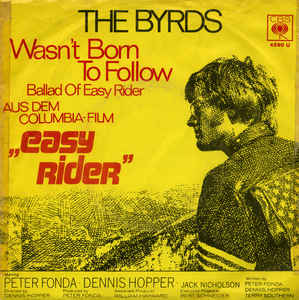
"Wasn't Born to Follow", also known as "I Wasn't Born to Follow", is a song written by Gerry Goffin and Carole King. Goffin wrote the lyrics and King provided the music. The song was first recorded by the Byrds on their 1968 album, The Notorious Byrd Brothers. King's short-lived band the City also recorded the song for their 1968 album, Now That Everything's Been Said. It has also been covered by many other artists, including the Monkees, the Lemon Pipers, Dusty Springfield, and as a solo recording by King. The Byrds recording was featured in the 1969 film Easy Rider and was released as a single in the UK and Germany in the same year as a result.
